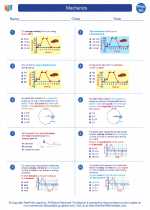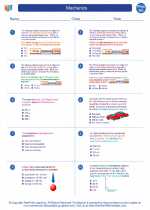Organization in Physics
In physics, organization refers to the systematic arrangement of concepts, principles, and equations to facilitate understanding and problem-solving. A well-organized approach to studying physics can greatly enhance comprehension and retention of the material.
Key Concepts
- Conceptual Organization: Understanding the relationship between different physics concepts, such as force, energy, motion, and electricity, and how they interrelate within the framework of physics principles.
- Mathematical Organization: Applying mathematical tools, such as calculus, algebra, and trigonometry, to represent and analyze physical phenomena through equations and formulas.
- Experimental Organization: Designing, conducting, and analyzing experiments to test physical theories and principles, and organizing the data collected to draw meaningful conclusions.
- Theoretical Organization: Formulating and organizing theories and models to explain and predict natural phenomena, and understanding the hierarchy of physical theories from classical mechanics to quantum mechanics.
Study Guide
Here are some tips for organizing your study of physics:
- Conceptual Understanding: Start by organizing your understanding of fundamental physics concepts, such as Newton's laws, conservation of energy, and the principles of electricity and magnetism. Use concept maps or diagrams to visually represent the relationships between different concepts.
- Mathematical Proficiency: Master the mathematical tools required for physics, including algebra, calculus, and trigonometry. Practice solving physics problems using these mathematical techniques, and organize your problem-solving strategies to systematically approach different types of problems.
- Experimental Skills: Familiarize yourself with the principles of experimental design and data analysis. Keep a well-organized laboratory notebook to record your experimental procedures, observations, and results. Practice organizing and presenting your experimental data in clear and concise formats.
- Theoretical Knowledge: Develop a structured understanding of physical theories and models, from classical mechanics to modern physics. Organize your study materials to reflect the interconnected nature of these theories and their applications to real-world phenomena.
By organizing your approach to studying physics, you can gain a deeper understanding of the subject and improve your ability to solve complex problems and analyze physical phenomena.
.◂Physics Worksheets and Study Guides High School. Mechanics
The resources above cover the following skills:
Core Ideas for Knowing Science
Physical Science
Changing the movement of an object requires a net force to be acting on it.



